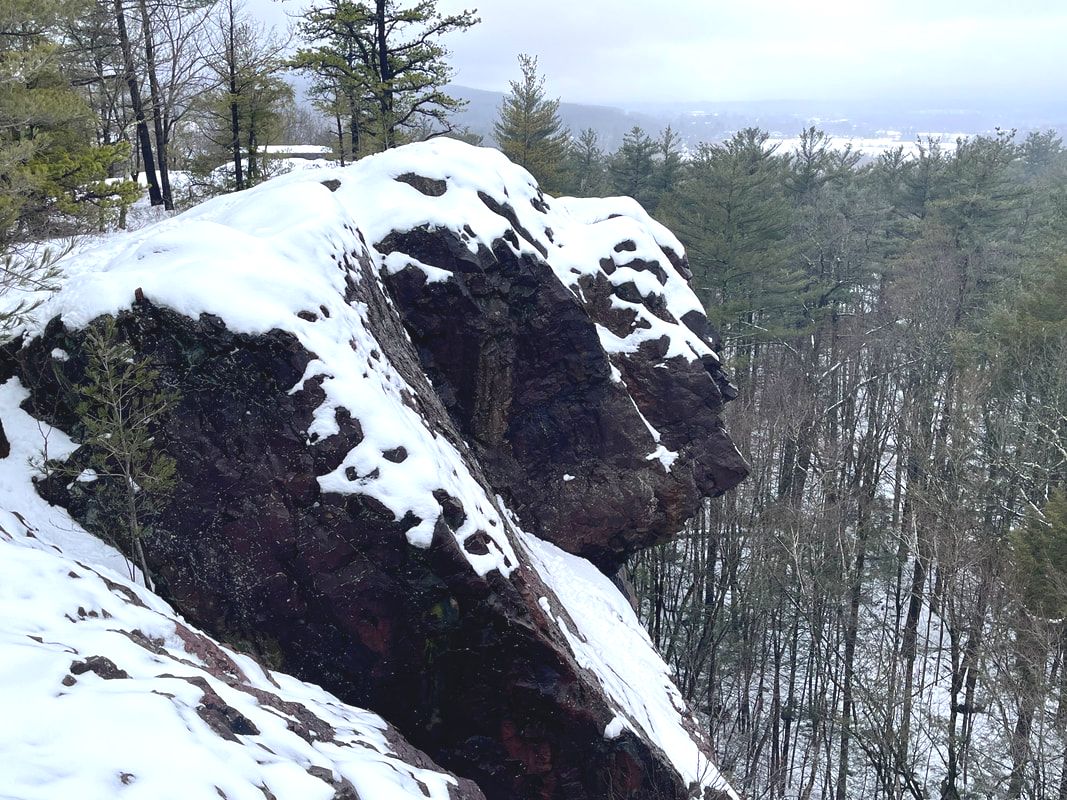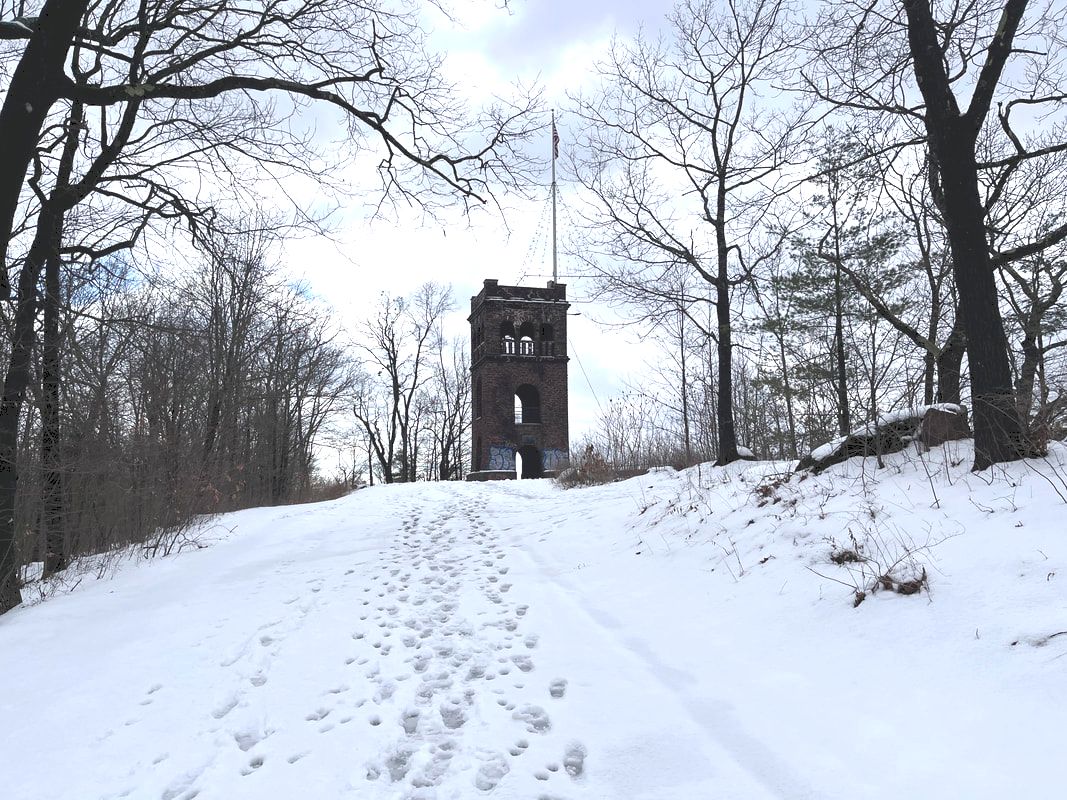|
Hiked On 3/1/23 Anyone who has spent time in the Pioneer Valley in New England has seen the proliferation of long ridges that spring up from the otherwise relatively flat landscape. Most of these are good hiking. Over a week ago I was in a car traveling north and noticed a particular ridge that looked promising. Further examination revealed that it is the location of the "Poet's Seat" a castle-folly and the monument to the relatively forgotten 19th Century Romantic poet Frederick Goddard Tuckerman. A few days later--on an appropriately romantic and rainy day--I went out to walk and explore. It really was snowing and raining for most of the time. However, the gray moodiness for this hike worked well. The trail along the long ridge undulated and the the snow shifted slightly under my feet. The rain and mist rising up from the warming snow was atmospheric, creating the sort of atmosphere that must have inspired a writer like Tuckerman. He preferred to keep to himself, after all. In 1860 when he published his first and only book--perhaps unimaginatively named "Poems"--he received a confused response. Many of his friends and acquaintances among the New England Literati didn't actually know he was a serious writer before their complimentary copies arrived. Tuckerman's book was only a mild commercial success. The response from his transcendentalist and romantic friends like RW Emerson, Jones Very and the Longfellows indicated that he had potential. However, only Nathaniel Hawthorn seems to have actually enjoyed it entirely. That said, most saw moments of brilliance, particularly in his collection of sonnets. They praised his close observation of nature. Later he would be described as a writer of herbariums. His focus on the minutia of the natural world could--when his writing was on point--create an immersive effect prized by readers of the day. His description of beans--in a poem ostensibly about coffee but really a story about some local characters--is typical of that work; "The bean, the garden bean I sing-- Lima, mazagan, late and early Bush, butter, black eye, pole and string Esculent, annual, planted yearly" He was also known to make up place names and allude to people he invented as if they were from the Bible or ancient literature. The dude could create a world, which is something that--as a gamer and reader of speculative fiction--is something I can get behind. That said, not all was happy in his life. Most of his poetry is dark. His later poems--after the death of his wife--are even more gloomy. As a young man he retreated out to Deerfield to be away from society and from the many connections cultivated by his family. He was the brother of a famous botanist, Edward Tuckerman, and a composer, Samuel Tuckerman. Henry Tuckerman--another writer--was his cousin. Far from Boston, apparently, he could be his romantic self. In the early 20th Century, Tuckerman was rediscovered...or...in some ways discovered for the first time. But the discovery was brief. At least it got him a monument, right? Now you can find his work in some anthologies of poets from the era. However, the easiest way to read him is to get his one book for your e-reader. After all, it is free online. There is more about Tuckerman and about the hike in the video below. Also, I turned it into a podcast
0 Comments
Leave a Reply. |
Adam Tierney-EliotI am a full-time pastor in a small, progressive church in Massachusetts. This blog is about the non-church things I do to find spiritual sustenance. Archives
June 2024
Categories
All
|


 RSS Feed
RSS Feed